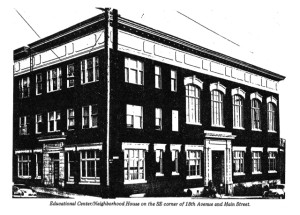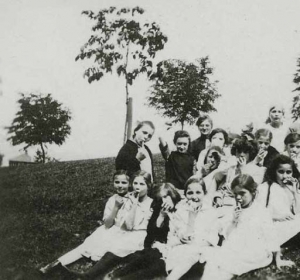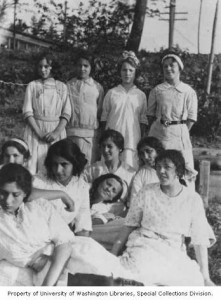Our project explores a brief section of the history of the National Council of Jewish Women’s Seattle chapter and highlights the undercurrents that developed as a result of their philanthropic endeavors. We examined the motives of the Settlement House, established in the early 1900s and how it’s vision and intentions impacted the newly arrived Jewish Immigrant population that they sought to serve.
The increase of immigration to the United States, the establishment of youth groups such as the Boy and Girl Scouts of America, the Pure Food and Drug Act all made an impact and contributed to the daily life of both the staff and patrons of the Settlement house.
Our focus is iin two areas, the experience of those who were helped by the settlement house and how the services of the settlement house reflected cultural norms at the time toward immigrants even within a smaller population such as the Jewish people of the United States.
The experience of immigrant women and their families can be gleaned from sources such as the Journal of Sociology and Social welfare’s Americanization and Cultural Preservation in Seattle’s Settlement House:: A Jewish Adaptation of the Anglo-American Model of Settlement Work, Dorothy Becker’s “50 years of Service: A History of the Educational Center.” and Jean Porter Devine’s From Settlement House to Neighborhood House: A historical survey of a pioneering Seattle social service agency.
We draw the bulk of our material from early meeting minutes, mission statements as well as yearly reports, called “Yearbooks” to form clear understanding of the Settlement house’s activities in relation to it’s mission statement.
Some examples of the Settlement house’s efforts to reform the immigrant population can be found in the classes they offered; below is a photo of a more prominent member of Settlement house, Hannah Pelz-Schartz with a class of young girls. To it’s right, a sewing class.
Sandy Barnes is an access student at the University of Washington and has a strength for historical research and attention to detail. K. Stoner is an undergraduate student at the University of Washington studying Communications and Jewish Studies.


